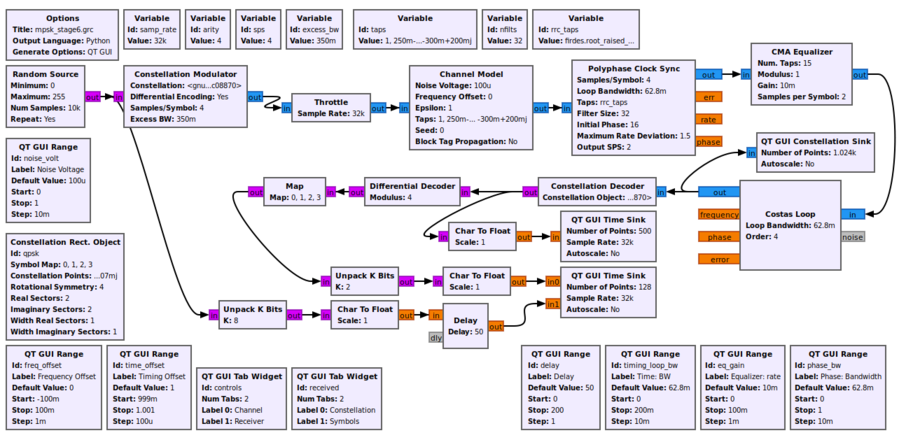Unpack K Bits: Difference between revisions
Jump to navigation
Jump to search
No edit summary |
(add Example Flowgraph) |
||
| (2 intermediate revisions by 2 users not shown) | |||
| Line 13: | Line 13: | ||
Each input byte produced four output bytes (that are either 0 or 1). Remember that there is no item type of "bit" in GNU Radio, so we have to use bytes to represent single bits. | Each input byte produced four output bytes (that are either 0 or 1). Remember that there is no item type of "bit" in GNU Radio, so we have to use bytes to represent single bits. | ||
== Parameters == | |||
; K | |||
: See above | |||
== Example Flowgraph == | |||
This flowgraph is taken from the [[Guided_Tutorial_PSK_Demodulation]] tutorial. | |||
[[File:stage6_grc.png|906px|]] | |||
== Source Files == | |||
Revision as of 14:18, 6 June 2020
Opposite of Pack K Bits - Converts a byte with k relevant bits to k output bytes with 1 bit each, located in the LSB.
In other words, this block picks the K least significant bits from a byte, and expands them into K bytes of 0 or 1.
Example:
k = 4
in = [0xf5, 0x08]
out = [0,1,0,1,1,0,0,0]
Each input byte produced four output bytes (that are either 0 or 1). Remember that there is no item type of "bit" in GNU Radio, so we have to use bytes to represent single bits.
Parameters
- K
- See above
Example Flowgraph
This flowgraph is taken from the Guided_Tutorial_PSK_Demodulation tutorial.
